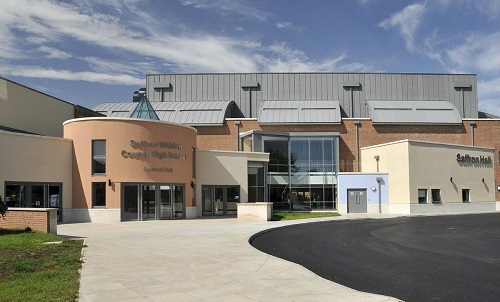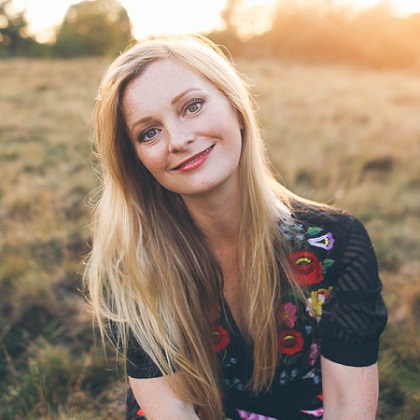Not many concert venues double up as school assembly halls. Actually, that statement does a double disservice: first, to Saffron Hall, which opened on the site of Saffron Walden County High School on 30 November 2013, and which in 2014 East of England Design through Innovation and Project of the Year award from the Institute of Chartered Surveyors; and second, to the facilities and opportunities that its inauguration created for the school and its pupils.
Saffron Hall is much more than a concert venue. It’s the embodiment of the belief that world-class professional music-making and the musical life of a local community can be mutually enriched by engagement, collaboration and shared cultural and social values. Over the last decade, its superb acoustic (designed by acoustic engineer Paul Gillieron) has attracted international artists such as Joyce DiDonato, Jess Gillam, Courtney Pine, Maxim Vengerov, Nicola Benedetti, Ian Bostridge and Bryn Terfel, as well as ensembles ranging from the Britten Sinfonia (Resident Orchestra since 2016), Aurora Orchestra, the London Philharmonic Orchestra (which became the Hall’s second RO in 2020), the City of Birmingham Symphony Orchestra and the National Youth Orchestra. And, just as it has gone from hosting 12 to 125 events per season over the last ten years, so the range of those events has broadened, embracing not just classical music but fully staged opera, folk, big band, brass band, swing, jazz, dance, pantomime, and spoken word.
Alongside such performances and events, the Hall has also hosted local ensembles and musicians, often providing opportunities for amateur and professional musicians to work together. The Saffron Centre for Young Musicians was formed in 2015 and was followed shortly after by the SWCHS Music Academy to deepen opportunities for sixth form students at the school. The Hall has initiated various community projects, such as Together in Sound (a music therapy programme for people living with dementia) and Saffron Sounds, part of its schools engagement programme, which offers workshop experience, supported by online resources and live performances, and which in the 2022-23 season reached over 850 primary school children.

So, there was a lot to celebrate at this 10th anniversary weekend. And, the celebrations were characteristically eclectic, imaginative and engaging, including A Jazz Celebration with the Don Forshaw Quartet, a Come and Sing with the London Community Gospel Choir, a Relaxed Performance by folk ensemble Honey & The Bear, an afternoon concert by Granta Chorale, and a concluding concert by the Britten Sinfonia with Jess Gillam. Nestled in the middle of the weekend was this concert performance of Handel’s Rodelinda which brought together three esteemed British singers, Iestyn Davies, Lucy Crowe and Christine Rice, and three young American singers whose early careers have been nurtured by or associated with the Metropolitan Opera: bass-baritone Brandon Cedel, tenor Eric Ferring and countertenor Aryeh Nussbaum Cohen.
Perhaps Rodelinda lends itself well to concert performances: there are none of those cats’-cradles of amorous intriguers or cross-gender disguises that (over-)complicate the narratives of some of Handel’s libretti, and the protagonists’ arias communicate their emotions with stunning directness and impact, making the characters’ misfortunes and dilemmas tangible and real. The ‘naturalness’ of the drama was enhanced at Saffron Hall by the relaxed ambience and immediacy created by the ‘cabaret-style’ set-up, with the stalls’ seats retracted into the rear wall (what a clever piece of design and engineering, facilitating the multiple uses to which the Hall is put), and various sized small tables dispersed across the floor, decorated with candles and holly sprigs, the lighting dipped. From the platform, there was a strong, communicative sense of musico-dramatic storytelling, with neat entrances and exits – nothing fussy, but enough to delineate stages in the action and allow individual singers to let the audience share their emotional turbulence. There was also quite a lot of off-score singing, which created fluency and immediacy.
Harry Bicket and The English Concert knew just how to exploit the crystal-clear, warm acoustic of the Hall. There was lovely grace, characterful bowing and pinpoint definition from the fiddles; the bass line was always fleet and dancing; expressive playing from the woodwind took the form of some beautifully playful echoing of the voices at times. In the recitatives (Joseph Crouch, cello; Sergei Bucheli, theorbo; Tom Foster, harpsichord), there was lightness and judicious decoration. Bicket’s approach may not offer anything particularly individualising or striking, but it draws absolute professionalism and artistry from his players. Tempi were as pitch perfect as the singing, persuasively pushing the drama forward.

And, as for that singing, well, three hours of da capo arias have rarely seemed so natural and captivating. I could happily have listened to three hours more. As the eponymous queen, Lucy Crowe ran the gamut of emotions from despairing grief to despising indignation, with petulance and defiance, resourcefulness and resilience in between. The paint-pots of colour into which she dipped her soprano were as varied and vivid as the facial expressions and gestures which carried Rodelinda’s emotional tumults into the audience’s hearts. Crowe has wonderful ease and softness at the top of her range, and she exploited this to telling emotive effect, sometimes fading and waning to almost a whisper to convey Rodelinda’s vulnerability – it was clear that the Hall allows such risks. Did her da capo embellishments sometimes take her into an anachronistic stratosphere? Perhaps, but she pulled them off, and they were at one with this Rodelinda’s wit and self-determining will.
Eric Ferring convincingly conveyed Grimoaldo’s inner conflicts. His tenor was gleaming and vehement in the early Acts – ‘Io già t’amai, ritrosa’ had a dramatic ferocity, and in Act 2 the coloratura was vocally controlled but also conveyed the tension and uncertainty which is increasingly invading the usurper’s thoughts – but the Act 3 aria ‘Pastorello d’un povero armento’, when Grimoaldo seeks sleep as a release from his torments and doubts, was particularly gracious and expressive. Christine Rice was a forthright Eduige, by turns impetuous, wry and contradictory, but always heart-on-sleeve honest in the moment. After ‘Lo farò’, one certainly wouldn’t have wanted to be on the wrong side of her desire for vengeance, but Rice also introduced a pertinent dramatic lightness to convey Eduige’s volatility.

Aryeh Nussbaum Cohen took a little while to settle – Unulfo’s first aria seemed to lie a bit low and the countertenor seemed rather tense – but by Act 3 he was more than into his stride, and ‘Un zeffiro spirò che serenò quest’alma’ was buoyant and relaxed, allowing us to appreciate the fullness of his voice, as well as its precision and flexibility, and lending depth of character to his portrayal of Bertarido’s loyal courtier. Brandon Cedel’s bass-baritone glowed darkly with Garibaldo’s ambition, treachery and self-interest. The flamboyance of his singing and characterisation perfectly revealed the villain’s arrogance.
As for Iestyn Davies, the first sustained note of Bertarido’s first aria ‘Dove sei, amato bene?’ (Where are you, beloved?), which shows the exiled king alone and in despair, held the entire Hall transfixed -and the countertenor sustained the vocal and dramatic magnetism through this aria – knowing just how much weight and colour to apply, and of what hue; when to hold back, when push forward – and throughout the evening. The coloratura was, as always, focused, clean and expressive; in the final Act when confronting the man who wished him dead and whose life he has saved, in ‘Vivi, tiranno’, Davies almost spat out veritable vocal and verbal fireworks, and they still sounded beautiful. As for the opera’s sole duet, ‘Io t’abbraccio’, which closes Act 2, the entwining softness of Davies’s and Crowe’s voices was simply exquisite. I can’t imagine Handel’s preciously beautiful music being better sung.
So, this was a night when the familiar was made new and intentions were declared in this quarter to make the newly discovered familiar. Crowe, Cedel and Davies recorded Rodelinda with Bicket and The English Concert in 2021 (with Joshua Ellicott, Tim Mead and Joshua Dandy completing the cast); the first thing I did upon arrive home was to order a copy. And, shamefully, this was my first visit to Saffron Hall. I have had plans to visit in the past but closures of the M11 led me to push those plans aside, fearing travel would be too fussy and frustrating. Well, there were motorway closures – and ice and fog – this weekend, too, but I’ll definitely be visiting Saffron Hall again. Soon.
Claire Seymour
Rodelinda – Lucy Crowe, Bertarido – Iestyn Davies, Garibaldo – Brandon Cedel, Grimoaldo – Eric Ferring, Eduige – Christine Rice, Unulfo – Aryeh Nussbaum Cohen; Conductor/harpsichord – Harry Bicket, The English Concert
Saffron Hall, Saffron Walden; Saturday 2nd December 2023.
ABOVE: Iestyn Davies (c) Chris Sorensen